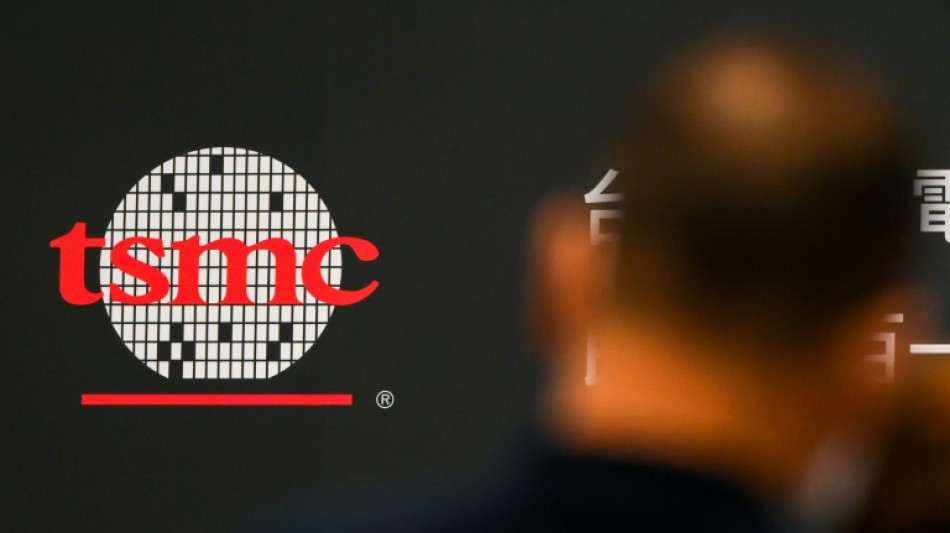
-
 Australian triple-murder suspect allegedly cooked 'special' mushroom meal
Australian triple-murder suspect allegedly cooked 'special' mushroom meal
-
Most stock markets rise despite China data, eyes on US reports
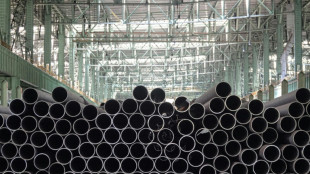
-
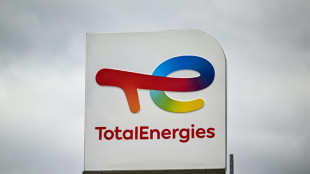 TotalEnergies profits drop as prices slide
TotalEnergies profits drop as prices slide
-
Volkswagen says tariffs will dampen business as profit plunges
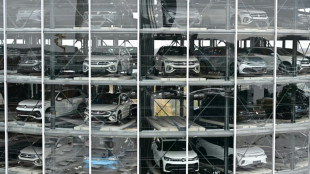
-
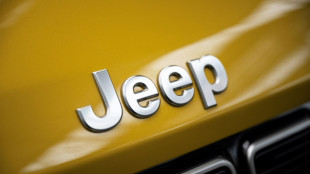 Jeep owner Stellantis suspends 2025 earnings forecast over tariffs
Jeep owner Stellantis suspends 2025 earnings forecast over tariffs
-
China's Shenzhou-19 astronauts return to Earth
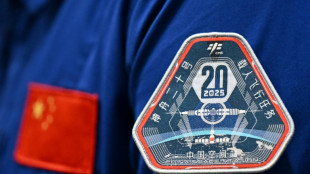
-
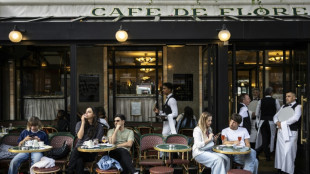 French economy returns to thin growth in first quarter
French economy returns to thin growth in first quarter
-
Ex-Premier League star Li Tie loses appeal in 20-year bribery sentence
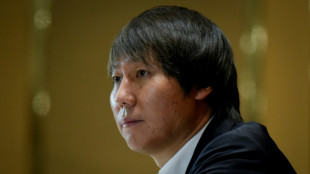
-
 Belgium's green light for red light workers
Belgium's green light for red light workers
-
Haliburton leads comeback as Pacers advance, Celtics clinch

-
 Rahm out to break 2025 win drought ahead of US PGA Championship
Rahm out to break 2025 win drought ahead of US PGA Championship
-
Japan tariff envoy departs for round two of US talks
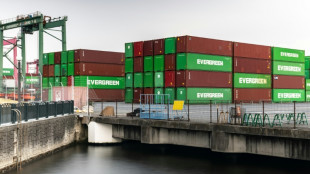
-
 Djurgarden eyeing Chelsea upset in historic Conference League semi-final
Djurgarden eyeing Chelsea upset in historic Conference League semi-final
-
Haliburton leads comeback as Pacers advance, Pistons stay alive

-
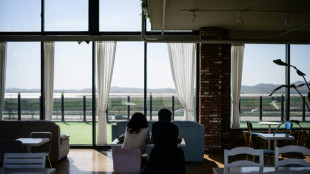 Bunker-cafe on Korean border paints image of peace
Bunker-cafe on Korean border paints image of peace
-
Tunics & turbans: Afghan students don Taliban-imposed uniforms
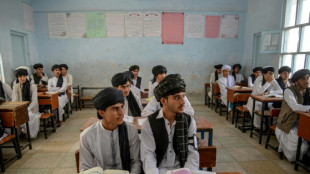
-
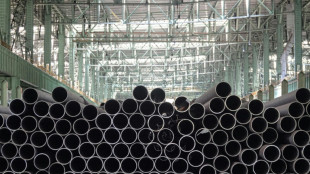 Asian markets struggle as trade war hits China factory activity
Asian markets struggle as trade war hits China factory activity
-
Norwegian success story: Bodo/Glimt's historic run to a European semi-final

-
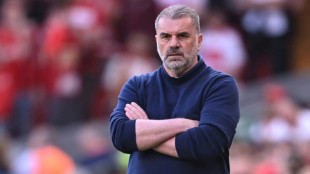 Spurs attempt to grasp Europa League lifeline to save dismal season
Spurs attempt to grasp Europa League lifeline to save dismal season
-
Thawing permafrost dots Siberia with rash of mounds
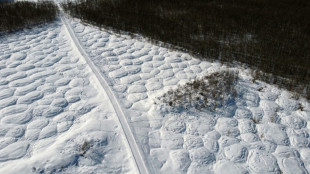
-
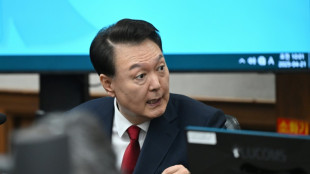 S. Korea prosecutors raid ex-president's house over shaman probe: Yonhap
S. Korea prosecutors raid ex-president's house over shaman probe: Yonhap
-
Filipino cardinal, the 'Asian Francis', is papal contender
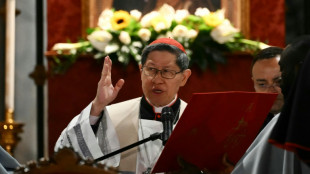
-
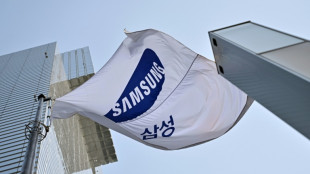 Samsung Electronics posts 22% jump in Q1 net profit
Samsung Electronics posts 22% jump in Q1 net profit
-
Pietro Parolin, career diplomat leading race to be pope
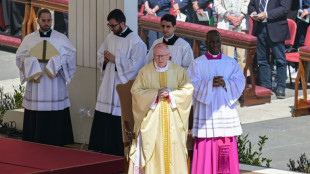
-
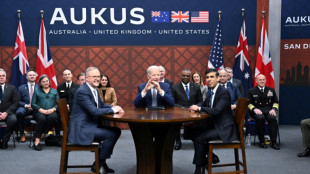 Nuclear submarine deal lurks below surface of Australian election
Nuclear submarine deal lurks below surface of Australian election
-
China's manufacturing shrinks in April as trade war bites
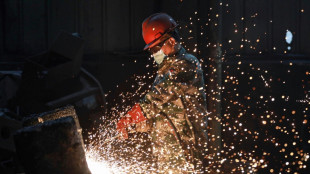
-
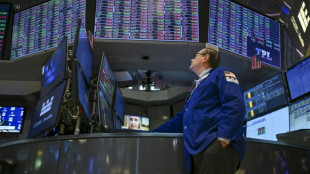 Financial markets may be the last guardrail on Trump
Financial markets may be the last guardrail on Trump
-
Swedish journalist's trial opens in Turkey

-
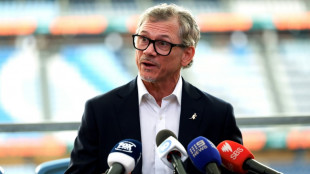 Kiss says 'honour of a lifetime' to coach Wallabies at home World Cup
Kiss says 'honour of a lifetime' to coach Wallabies at home World Cup
-
US growth figure expected to make for tough reading for Trump
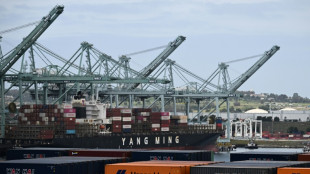
-
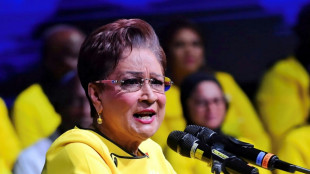 Opposition leader confirmed winner of Trinidad elections
Opposition leader confirmed winner of Trinidad elections
-
Snedeker, Ogilvy to skipper Presidents Cup teams: PGA Tour
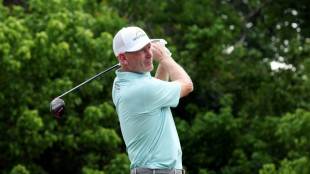
-
 Win or bust in Europa League for Amorim's Man Utd
Win or bust in Europa League for Amorim's Man Utd
-
Trump celebrates 100 days in office with campaign-style rally
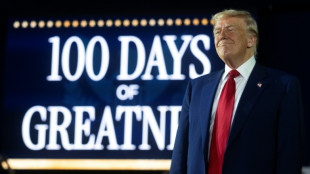
-
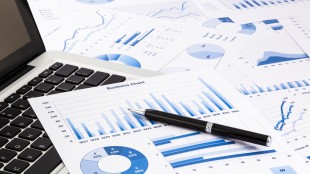 Liberty Backs Business Owners Following 2025-26 Australian Federal Budget
Liberty Backs Business Owners Following 2025-26 Australian Federal Budget
-
Helium One Global Ltd Announces Jackson-27 Flow Test Results & Gas Analysis Update

-
 Argo Blockchain PLC Announces Financial Update and Listing Suspension Request
Argo Blockchain PLC Announces Financial Update and Listing Suspension Request
-
Guardian Metal Resources PLC Announces Tempiute Mine Project - Geological Update

-
 Agronomics Limited Announces BlueNalu Expands Partnership with Nomad Foods
Agronomics Limited Announces BlueNalu Expands Partnership with Nomad Foods
-
Helium One Global Ltd Announces Jackson-2 Spud at Galactica Project
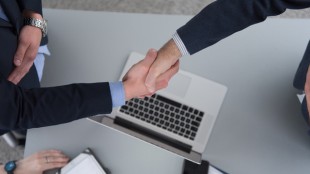
-
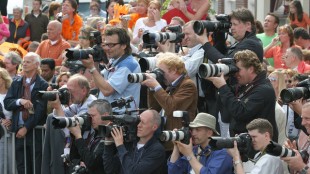 Global Industry Leaders to Address Critical Trade Changes at Licensing Expo 2025
Global Industry Leaders to Address Critical Trade Changes at Licensing Expo 2025
-
Top Cuban dissidents detained after court revokes parole
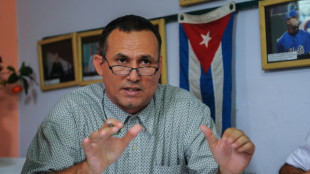
-
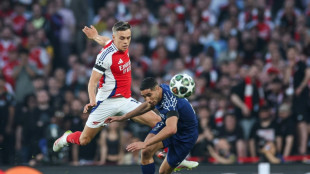 Arteta urges Arsenal to deliver 'special' fightback against PSG
Arteta urges Arsenal to deliver 'special' fightback against PSG
-
Trump fires Kamala Harris's husband from Holocaust board
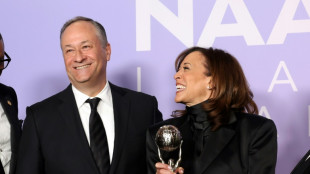
-
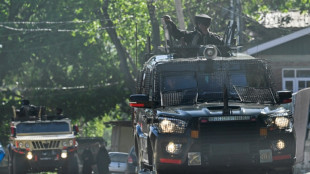 Pakistan says India planning strike as tensions soar over Kashmir attack
Pakistan says India planning strike as tensions soar over Kashmir attack
-
Weinstein sex attack accuser tells court he 'humiliated' her
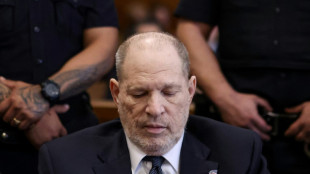
-
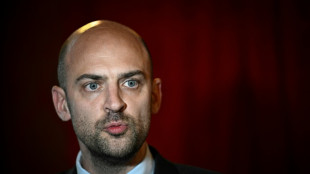 France accuses Russian military intelligence over cyberattacks
France accuses Russian military intelligence over cyberattacks
-
Global stocks mostly rise as Trump grants auto tariff relief
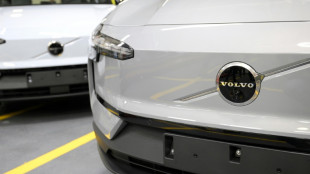
-
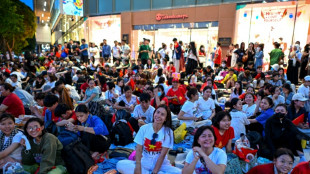 Grand Vietnam parade 50 years after the fall of Saigon
Grand Vietnam parade 50 years after the fall of Saigon
-
Trump fires ex first gentleman Emhoff from Holocaust board
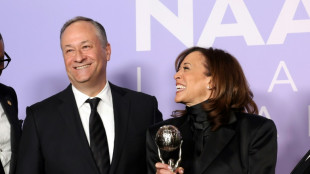

Germany gets Taiwan chip giant TSMC's first European plant
Taiwanese chip giant TSMC agreed Tuesday to plough $3.8 billion (3.5 billion euros) into a new semiconductor factory in Germany, lending a major boost to Europe's efforts to bring production onto the continent.
Total investments in the factory, TSMC's first in Europe, are expected to exceed 10 billion euros, with "strong support from the European Union and German government", along with TSMC's partners in the project.
Taiwan Semiconductor Manufacturing Company will set up a joint venture with German groups Bosch and Infineon and Dutch firm NXP to build the plant, the companies said, with construction to begin in the second half of 2024.
TSMC is a key player in the sector, controlling more than half the world's output of microchips.
The facility in Germany is expected to begin production by the end of 2027, with monthly capacity to reach 40,000 300mm (12-inch) wafers. It will also create about 2,000 direct jobs, the companies said.
Hailing the news, Chancellor Olaf Scholz's economic adviser Joerg Kukies wrote on X that "this is another major step to implement our strategy to make Germany a globally leading location for the global semiconductor industry".
Stung by the energy crisis unleashed by Russia's war in Ukraine, Germany and its allies have been racing to slash dependencies on countries such as China and ramp up domestic production of sensitive components such as semiconductor chips.
The ambition set by the EU under its "Chips Act" is to increase Europe's slice of global semiconductor production to 20 percent by 2030.
Such chips are necessary to power everything from computers to smartphones to missiles in an increasingly tech-dependent world.
The EU's industry commissioner Thierry Breton hailed the planned new plant as the Chips Act "in motion -- bringing stronger security of supply for Europe, including for EU's automotive industry".
- Huge challenges -
Tension between China and Taiwan, a self-ruled democracy that Beijing claims as its territory, has prompted the West to cast a wary eye on its reliance on TSMC.
The new German factory will be based in the eastern city of Dresden in a region known as Silicon Saxony for its high-tech manufacturing base.
"Europe is a highly promising place for semiconductor innovation, particularly in the automotive and industrial fields, and we look forward to bringing those innovations to life on our advanced silicon technology with the talent in Europe," TSMC's chief executive CC Wei said in a statement.
Michael Kretschmer -- leader of Saxony state, where the plant will be based -- said the project would have an impact across the region.
"It will generate billions in investment and many jobs -- both directly and indirectly, including in skilled trades and for small- and medium-sized enterprises," he said.
But the German chip drive faces numerous challenges, ranging from high energy prices following Russia's invasion of Ukraine to shortages of skilled workers.
In June, Berlin and Intel signed a deal for the US chip behemoth to build manufacturing sites in the eastern city of Magdeburg after months of tense negotiations.
But the huge level of state support -- Berlin is providing 9.9 billion euros for the 33-billion-euro project -- has proved controversial, with some questioning whether the investment is worth it.
TSMC did not disclose the level of financial support from Germany but business weekly Handelsblatt reported on Monday that it would reach five billion euros.
Ch.Kahalev--AMWN

